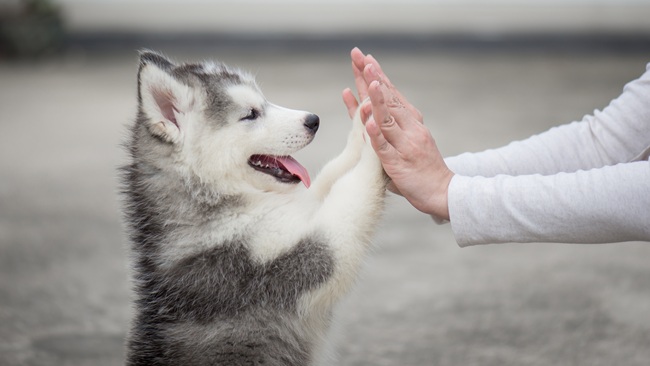Feb 24, 2026
Feb 24, 2026
How Dogs Became Humanity’s Deepest Biological Bond
What makes a dog rush to your side when you cry, gaze into your eyes with unspoken understanding, or sense your anxiety before you speak a word? Is it mere training, blind loyalty, or something far deeper — something molecular? Can the bond between humans and dogs be explained not just in stories, but in science?

A groundbreaking study from Sweden’s Linköping University has shattered conventional notions of the human-dog relationship. It confirms that the connection we feel with our canine companions is not simply emotional or behavioral — it is biological. At the heart of this extraordinary connection lies a powerful neurochemical: oxytocin, the same hormone that cements trust between mother and child, that fuels love between partners, and that now, science tells us, binds dogs and humans in a relationship unlike any other in the animal kingdom.
From Wild Predators to Emotional Mirrors
Thousands of years ago, wolves began inching closer to human settlements, drawn by food scraps and evolving social cues. Over generations, the fiercest gave way to the friendliest. But it wasn’t just behavior that changed — biology did too.
Modern dogs carry specific oxytocin receptor gene variants that enhance their social orientation toward humans. These variants do more than influence temperament. They shape how dogs seek eye contact, ask for help, and even mirror human emotional states. In effect, dogs have been neurologically rewired through domestication to align themselves with our species — body, brain, and bond.
The Third Wave of Domestication: Empathy as Evolution
Today, we are witnessing what scientists call the third wave of domestication. If the first was driven by survival and the second by utility, this era is defined by emotional intelligence. The modern service dog — trained for therapy, companionship, or specialized tasks — is not just obedient. These dogs are empathy-driven, neurochemically attuned allies, often selected from early puppyhood for their oxytocin responsiveness and calm social cognition.
What separates a guide dog or emotional support animal from its ancient counterparts is not just purpose, but perception. These dogs are bred and nurtured to interpret micro-emotions, facial expressions, vocal modulations, and bodily changes — even sensing oncoming seizures, panic attacks, or shifts in blood sugar.
The result is a symbiotic intelligence that bridges two species in ways even advanced AI cannot replicate.
Beyond Loyalty: Dogs as Emotional Technology
In an age where technology often promises connection but delivers isolation, dogs remain an unmatched model of emotional presence. This biological synchrony challenges us to rethink mental health, therapy, and even the future of caregiving. Already, hospitals, schools, and eldercare centers worldwide are investing in service dog programs not as a novelty, but as a neurobiological intervention.
The canine capacity for oxytocin-driven empathy could soon redefine psychiatric care, trauma recovery, and neurodevelopmental treatment models. In this, dogs are not only companions; they are emotional infrastructure.
Final Thoughts: Are We Worthy of the Bond We Were Gifted?
If dogs have spent thousands of years evolving to understand and support us, have we evolved equally to understand and support them? Are we treating them merely as tools of therapy and service, or honoring them as co-evolutionary partners? As science unravels the molecular foundation of our love for dogs, will we use that insight to deepen mutual respect — or reduce it to laboratory data?
What does it say about humanity that our greatest emotional technology was never a device, but a living creature that sleeps at our feet? And in an age of artificial intelligence, will we finally value the biological wisdom of empathy that dogs have always embodied?
Image (c) istock.com
05-Jul-2025
More by : P. Mohan Chandran